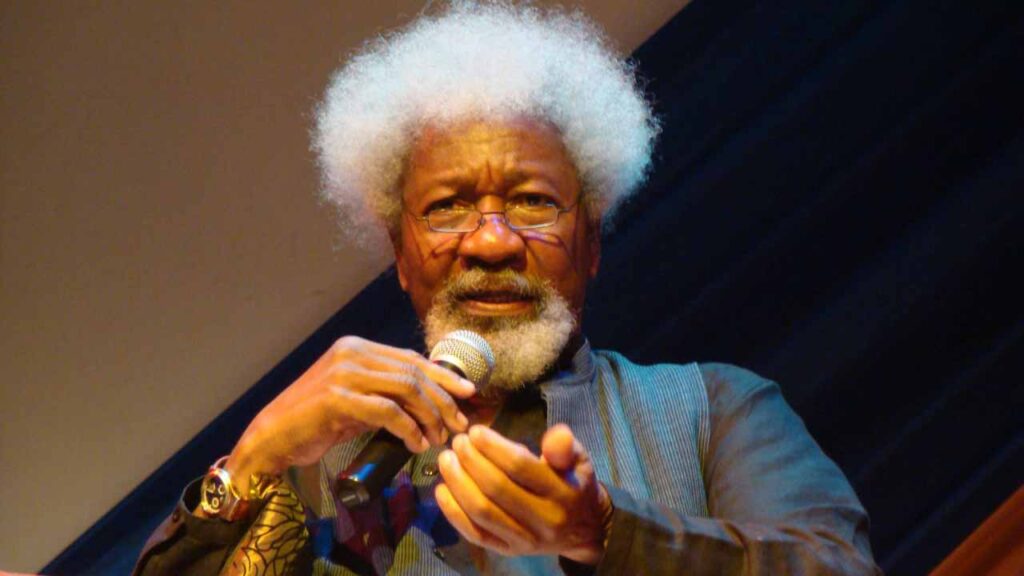
Book: Once Upon An Elephant
Playwright: Bosede Ademilua-Afolayan
Publisher: Accessible
Publisher Ltd (Formerly Rasmed Publications Ltd)
Year of Publication: 2023
The history of post colonial Africa is replete with dictatorship, tyranny, oppression, subjugation under restrictive laws and abridgement of freedoms.
The continent has never been free since its encounter with European conquerors/colonisers who deployed humungous violence to conquer and subjugate the continent and its ethnic nationalities to form different contraptions and unholy alliances now called countries: Leaving a culture of autocracy and corruption in a dis-indigenised continent.
It was the philosopher, Aristotle, who said good habits formed at youth make all the difference. In Once Upon An Elephant by Bosede Ademilua-Afolayan, there is attempt to impart on youths, time-honoured moral values, taking into cognisance, vices taking over as norm.
The playwright trains the heart and mind of viewer/reader towards whatever is good and it involves rules and precepts — the dos and don’ts of life — as well as instructions, exhortation and training of the young.
Using oral traditions and Yoruba folktales, the playwright weaves a story that basically runs ring in Africa. Once Upon An Elephant is about autocracy and tyrannical actions of dictators visible in Africa since colonialism ended in the continent: the self perpetuating syndrome of African leaders.
The playwright says, “it looks at the issue of dictatorship, ‘sit-tightism’, or what some critics have referred to as the self perpetuating syndrome of African leaders at every level of governance.”
She continues, “it amuses me why a mortal would want to achieve immortality either by prolonging their stay in office or by wanting to play god in the lives of other men.”
Dwelling on a theme that has earlier been explored in plays such as, Wole Soyinka’s A Play of Giant, Opera Wonyosi, Kongi’s Harvest and King Baabu, Femi Osofisan’s Yungba Yungba and The Dance Contest and Hope Eghagha’s Onawawi Shall Rise Again, Ademilua-Afolayan shows there is “something wrong with African politics and politicians.”
Inspired by the poem, Salute to the Elephant, by Adeboye Babalola, based on the Yoruba folk narrative about the haughty elephant and cunning tortoise, the play is a metaphoric representation of the continent, which has suffered underdevelopment as a result of poor leadership.
While relying on suspense and irony for movement of the characters, the play uses literary genres such as poetry, drama and narrative for evocation. Festivals, rites and ritual, which are African traditional theatrical enactments, flesh out the 105-page, 14 acts book. It is one of the pieces you enjoy as drama, appreciate as theatre and fall in love with as traditional poetry.
The play opens with the performance of a rite on the supposedly king’s son – Ajanaku – by Serubawon while Odejimi and Ogundele watch. However, Ogundele subtly challenges the performance of such rite since the king (Akinjobi) is not yet dead – though terribly sick – and that Ajanaku is not the king’s first son.
King Ajanaku tries all dishonest means to be enthroned in power despite not being the rightful person to the throne. Ajanaku uses all his Machiavellian means to arm-twist the elders to choose him instead.
A flurry of activities, which culminates in ‘Olubori’ and ‘ijedodo’ rites follow, without Serubawon bent on making Ajanaku immortal without seeking advice from the other elders – Odejimi, Ogundele and Odegbami.
Iya Agba excoriates him for this plan, saying: “You want to make him immortal. What kind of man are you? Where on earth have you ever heard that any mortal being rivals the divine?”
Ironically, the charm that Serubawon makes for Ajanaku is later used on his only daughter. Ajanaku confesses that he has only continued with the rite dictated by Serubawon by sleeping with the sixth virgin.
Referred to as ‘Ijedodo’, the charm ‘feeds on the blood of the virgin to keep whosoever has done it alive while that virgin dies a slow and painful death’. He wants to make himself immortal by engaging in this shameful act. Just like dictators everywhere, shame and death thus become his lot at the end of the day.
Like Segi in Wole Soyinka’s Kongi’s Harvest, Iya Agba helps in the downfall of Ajanaku. She speaks truth to power despite the fact that virtually the whole community condemns her as being senile and mad. She is the lone voice that pricks the throat of the elephant. Her constant visits to the palace make Ajanaku to become uncomfortable as she castigates Ajanaku’s illegal throne.
She leads others to bring back the life of Desola by engaging in a mock battle with the King. This later leads to Ajanaku’s death.
Besides being a poet, dramatic scholar and playwright, Bosede Ademilua-Afolayan is an Associate Professor in the Department of English, University of Lagos, Nigeria. She holds a doctorate degree in Comparative Drama from the same university. Her debut play, Look Back in Gratitude, was published in 2013 while Once Upon an Elephant is her second play.













